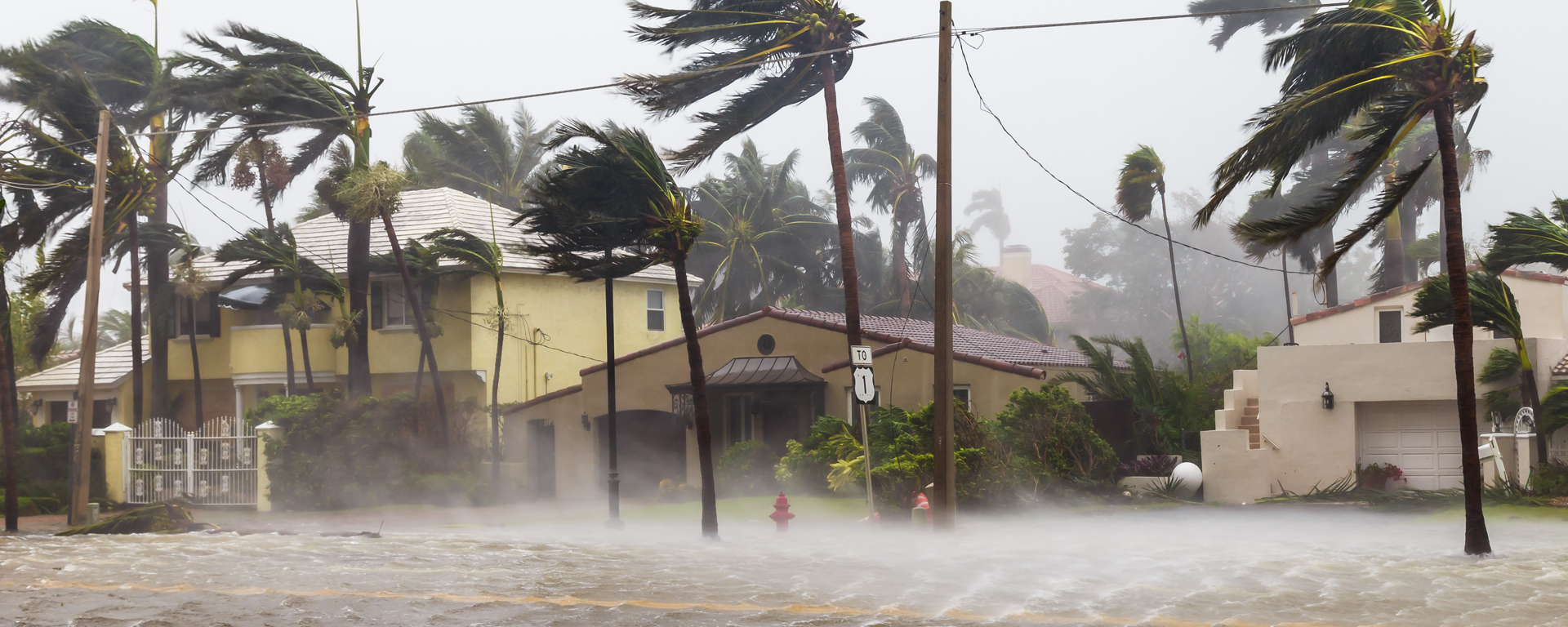
Stationed in the Path of a Hurricane? Check Out These Tips from Armed Forces Insurance.
Military families acquire survival skills based on our new zip code (which we may or may not remember at the gas pump). One year we’re shoveling snow, the next we’re handling earthquakes, and now we’re tracking hurricanes.
Take Florida for example: I wish I could say that it was just beaches, warm weather, and theme parks, but that’s only half the story. As a native Floridian, I’ve dealt with our unique brand of crazy. I’m talking poisonous snakes, summer thunderstorms, an alligator that almost ate our cat, and of course, hurricane season.
Hurricanes bring many things, but panic doesn’t have to be one of them. You’ll want to prepare for high winds, debris, power loss, falling objects, flood, damages to your personal property, school cancelations, potential evacuation, and -- most importantly -- the safety and security of your family.
You got this!
25 Hurricane Season Tips for Your Military Family
Start by obtaining and checking your insurance policies. Armed Forces Insurance (AFI) is proud to offer Auto, Home, Renter, Flood, Pet, and Valuable Item Insurance, to name a few. Created by former military leaders, AFI protects those who protect our nation, while offering competitive rates. Know your policy and know how to get in touch with their team.
Your Home
- Stock up on hurricane supplies — batteries, flashlights, non-perishable food, bug spray/citronella candles, matches, manual can opener, cooler, battery-operated radio, battery-operated fans, a grill, and power banks. Bonus points if you own a generator and a chainsaw.
- Freeze tap water for cleaning, drinking, or for pets. Leave space at the top of the container so that it doesn’t crack when the ice expands.
- Sanitize a bathtub and fill it with water.
- Make room for ice by using perishable items. Make ice cubes and store them in bags in your freezer, or fill empty plastic milk cartons with water to freeze and use as ice blocks in case of power loss.
- Secure loose items in your yard (grills, chairs, toys, trash cans, etc.) that may become projectiles in high winds.
- Take “before” photos/videos of your home for a personal inventory. Move these to a shared drive in case your device gets damaged.
Your Vehicle
- Clear out your garage to safely park your car inside.
- Ensure you have a full tank of gas, full tires, and that oil and other fluids are in check.
- In the event of an evacuation, have toll money in your vehicle, and consider taking only one car to minimize traffic.
Your Valuables
- Take photos of important documents and email them to yourself or put them in a shared drive. Store these documents in sealed bags or plastic bins off the floor in case of flooding.
Your Money
- Get cash ahead of time, and/or have checks printed up, so that you aren’t solely reliant on plastic. Electronic systems may go down.
- In the event of an out-of-state evacuation, notify your bank and credit card company so your cards aren’t restricted.
Your Pets
- Ensure that you have water and food for your pets for several days.
- Microchipping your pet can help you reconnect in the event they get lost.
- In case of evacuation, bring necessary carriers, leashes, and records. Some shelters and safe havens require these.
Your Communications
- Program contact information for your insurance company in your phone, and have a hard copy list of important phone numbers, in case your phone dies.
- Have portable power banks, and USB cords for your vehicle.
- Turn on Emergency and Public Safety Alerts in your phone’s settings.
- If you have a weather tracking app, turn on notifications, and don’t silence your phone overnight.
- To preserve battery life, dim your device’s screen and close all apps and tabs that aren’t being used.
Your Family
- During a severe thunderstorm with lightning, unplug important devices that aren’t plugged into a surge protector (tv, microwave, laptops, stand mixers, etc.)
- Understand the difference: a tornado watch means that conditions are favorable, a tornado warning means that a tornado has been spotted and to take cover immediately.
- In the event of tornadoes, go to an interior room (no windows) on the ground floor. Get on your knees, tuck into a ball, and cover your head with your hands.
- Educate your family on storms and your plan beforehand to help reduce panic. If kids are scared while you’re sheltering, talk to them calmly, reassure them, and sing songs or recall happy memories as a distraction.
- When the eye of the storm passes over, all will sound calm and quiet. A second round will soon hit, so remain in your safe space until the storm has passed.
In the event of hurricanes, a little preparation goes a long way. Military families are the epitome of adapting and overcoming -- we believe in you!